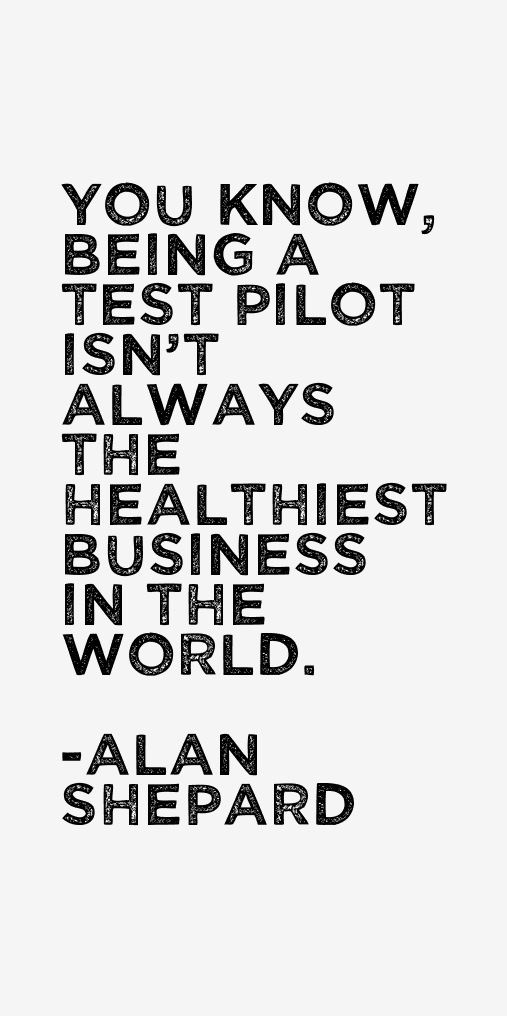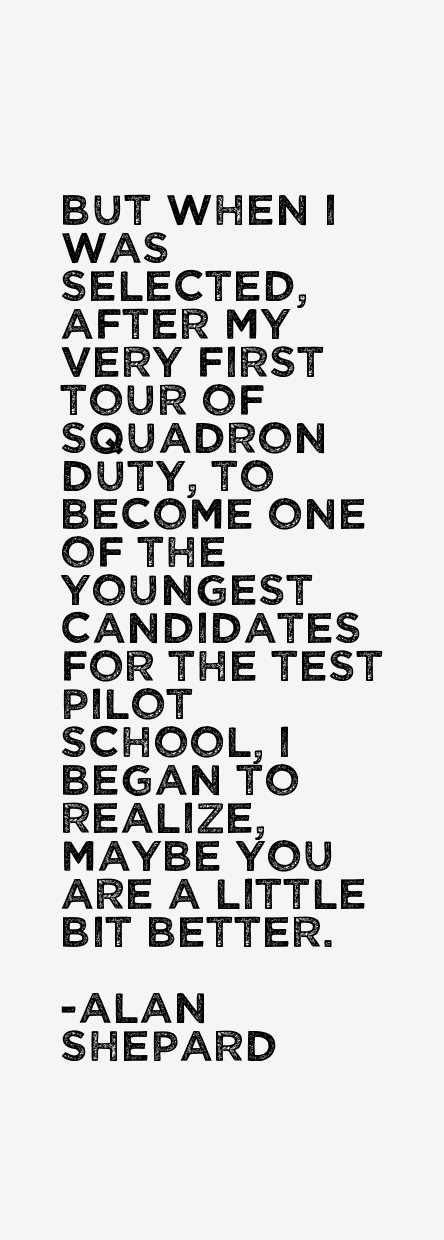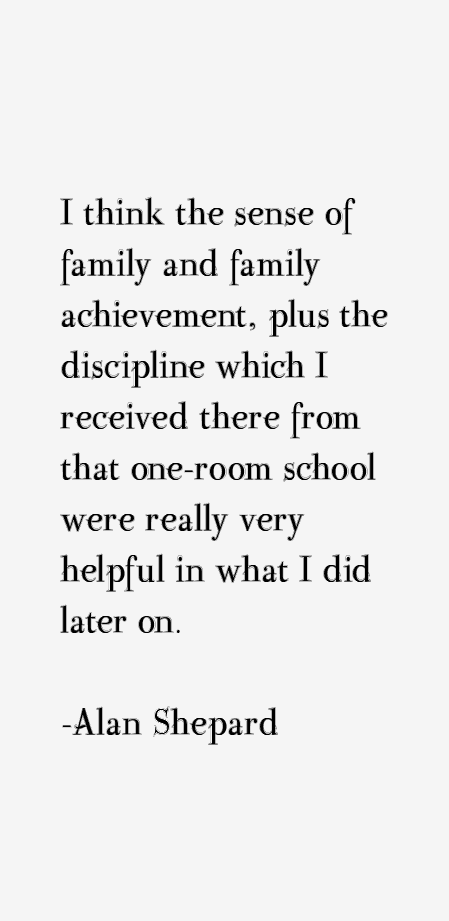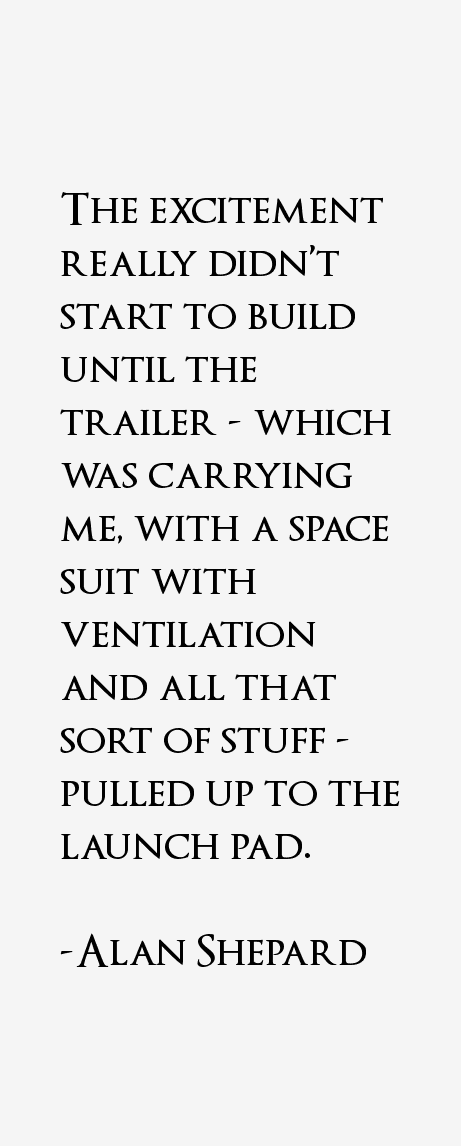Alan Shepard Quotes & Sayings (Page 2)
Alan Shepard quotes and sayings page 2 (deceased astronaut born on Nov 18, 1923). Here's quote # 11 through 20 out of the 29 we have for him.

“You know, being a test pilot isn't always the healthiest business in the world.”
“And I think that still is true of this business - which is basically research and development - that you probably spend more time in planning and training and designing for things to go wrong, and how you cope with them, than you do for things to go right.”
“You've done it in the simulator so many times, you don't have a real sense of being excited when the flight is going on. You're excited before, but as soon as the liftoff occurs, you are busy doing what you have to do.”

“But when I was selected, after my very first tour of squadron duty, to become one of the youngest candidates for the test pilot school, I began to realize, maybe you are a little bit better.”
“The pilot looked at his cues of attitude and speed and orientation and so on and responded as he would from the same cues in an airplane, but there was no way it flew the same. The simulators had showed us that.”

“I think the sense of family and family achievement, plus the discipline which I received there from that one-room school were really very helpful in what I did later on.”
“Then there was the challenge to keep doing better and better, to fly the best test flight that anybody had ever flown. That led to my being recognized as one of the more experienced test pilots, and that led to the astronaut business.”
“So everything turned out fine, and we were given the opportunity to go to Washington and be briefed on the project of man in space, and given the opportunity to choose whether we wanted to get involved or not.”

“The excitement really didn't start to build until the trailer - which was carrying me, with a space suit with ventilation and all that sort of stuff - pulled up to the launch pad.”
“We wanted to be in great shape, we wanted to be able to cope with zero gravity, we wanted to be able to cope with accelerations and decelerations and so on. So all of us trained so that we were probably in the best physical condition we had ever been in up until that point.”
Alan Shepard Quotes Rating
No Ratings Yet
Leave A Comment
























